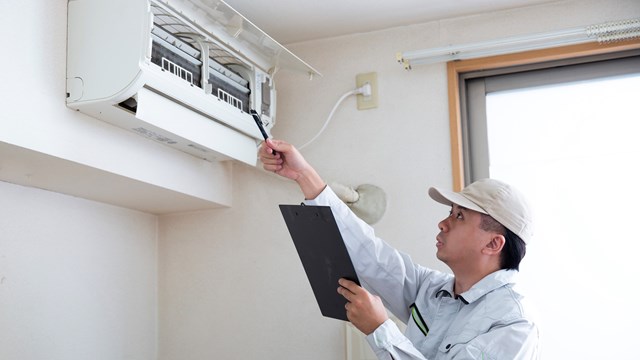As temperatures around the globe reach dangerous highs, many places are hitting the highest temperatures they’ve ever recorded—yet large-scale federal action on climate legislation is stymied. War rages on in Ukraine; inflation dogs economies worldwide; ever-larger wildfires destroy homes, habitats, and resources; and we continue to endure an unprecedented viral pandemic that has disrupted everything in our lives, our livelihoods, and our global interdependencies.
This parade of catastrophes is perhaps best represented by a single necessary commodity: fuel. Fuel’s origins, production methods, availability, and prices influence everything from international diplomacy to household budgets. Our inexhaustible need for it is both a cause and a consequence of the increasingly warming planet. And because it is both a necessity and a commodity, it confers outsized power on those who have control over its access.
Driving it Home
How does this admittedly bleak picture relate to multifamily housing, you might ask? The better question is how doesn’t it relate? According to the World Green Building Council (WGBC), buildings account for 39% of global energy-related carbon emissions; 28% of that comes from operational emissions—from energy needed to heat, cool, and power them—and the remaining 11% from materials and construction. In super-dense cities like New York, that share of total emissions nearly doubles to 70%. And, as the WGBC reports, the world’s building stock is expected to double by the middle of this century as the global population approaches 10 billion people.
According to a recent WGBC white paper, “Carbon emissions released before the built asset is used, what is referred to as ‘upfront carbon’, will be responsible for half of the entire carbon footprint of new construction between now and 2050, threatening to consume a large part of our remaining carbon budget. Therefore, the built environment sector has a vital role to play in responding to the climate emergency, and addressing upfront carbon is a critical and urgent focus.”
But just as humanity is facing its climate reckoning, it is also facing supply chain disruptions, labor shortages, and a volatile regulatory environment—not to mention the highest rate of U.S. inflation in more than 40 years, and even a possible looming recession. In other words, just as the need—and impetus—to make major overhauls and retrofits to our buildings to combat our climate crisis intensifies, so do the logistical and financial impediments to completing those overhauls.
While some jurisdictions are more or less forcing the issue—as New York City did with its Climate Mobilization Act of 2019, which essentially makes it more expensive to not undertake emission-reducing projects than to complete them—other localities may have a harder time incentivizing their cooperatives, condos, and homeowners associations to undertake the costly and disruptive work necessary to reduce their buildings’ impact on climate.
On the other hand, the rising cost of oil and gas might itself be a catalyst in moving multifamily corporations and associations toward greener infrastructure and alternative fuel sources. “This current rise in energy costs is [leading to] more interest in energy efficiency in buildings,” says Liam Bailey, global head of research at international real estate consultancy Knight Frank. “It could well lead [co-ops and condos] to consider how they could improve their homes or make them more energy efficient—it’s just coming at a bad time in terms of it being difficult to get materials.” (More on this later.)
Fueling Inflation
Aside from planet-saving initiatives, costs for nearly everything—including the goods and services needed to operate and maintain multifamily properties—are up an average of 10% from just a year or two ago. Some sectors, particularly energy, are up nearly 20%. Gas prices at the pump have skyrocketed 60% at the time of this writing, leading businesses and services that use gas-powered vehicles and equipment to pass the increase on to consumers—whether individuals or co-op corporations and condominium associations.
“Fuel is knocking budgets for a loop,” says Scott Wolf, CEO of Boston-based BRIGS Property Management. He points out that the impact of fuel costs is both direct and indirect. “An indirect result of the increase in fuel prices is that we see all the vendors increasing their vehicle surcharges,” he says. “Monthly billings are really starting to [reflect] that now. We thought this fuel price jump would be short-term, but it’s not. Any vendors coming to properties we manage are passing higher vehicle charges on to their customers to cover the increase in their fuel costs.”
Amanda Agati, chief investment officer at national financial services corporation PNC Financial Services Group, says that industry vendors are structuring contracts differently to accommodate this volatile market. “We’ve seen really significant shifts on the part of builders and contractors to move from fixed prices to [contracts] with [cost] escalators in them,” she says. She notes that renovation prices can rise even higher when you account for “significant increases in shipping costs, which are largely a function of rising energy prices.” Added to that, many raw materials used in construction and renovation of buildings are derived from petroleum—including products like rubber, plastic, certain chemicals, roofing shingles, and fiberglass insulation.
“Inflationary pressures affect many aspects of the real estate industry, and it’s top of mind for co-op and condo owners, board members, and managers,” adds Ajo Kurian, a senior vice president with AKAM Management, a real estate management firm based in New York City and Florida. “The results of inflation and rising costs are seen everywhere, from basics such as cleaning supplies, to labor costs—consider the recent 32BJ contract for building workers in New York City, for example - and equipment and materials for capital projects.” (The contract for members of the 32BJ union, which represents a majority of building service workers in the New York, as well as many in the tri-state and Mid-Atlantic areas, was revised in April 2022 to provide a 12.57% wage increase over four years and protect pension and healthcare benefits.)
In the real estate market itself, rising energy costs even affect property values, and which properties are selling. In recent remarks to Mansion Global, Bailey predicted that this year will see much slower price gains in all types of U.S. properties, including multifamily dwellings: “This current round of inflation from energy prices…is prompting central banks to raise rates, and that’s something that will slow property price growth. We’re already seeing the impact.” Indeed following an increase in mortgage rates this past March, U.S. home sales fell by 4% from the previous month and by 8% compared to March 2021, signaling a cooldown in the market.
Breaking the Chain
Supplies and the cost to transport them are not only getting more expensive, they’re getting harder to come by. This is causing many buyers to rethink fixer-uppers or investment properties, knowing that both their costs and their wait to enjoy that home or that ROI could grow significantly. Conversely, it’s accelerating the value and days-on-market of move-in-ready properties.
“For people considering buying properties that need restoration or renovation,” says Bailey, “you’re going to be delayed—it’s going to take a long time to get workers and materials. We’ve seen it recently … properties that are newly refurbished or brand new—available to sell right now—are trading at a premium.”
The same is true for the day-to-day needs of multifamily buildings, which rely heavily on a wide variety of parts, materials, equipment, and supplies. “Frankly,” says Wolf, “we’re seeing more issues caused by the broken supply chain and the lack of available staff at vendor firms than with pricing increases due to inflation. Everyone is aware of inflation now, so it’s not a big surprise when you get the bill. Most [people] are expecting it. The bigger issue for us is how long we’re waiting for necessary parts, equipment, etc., to be delivered. In addition to costs having risen, appliances are delayed and building materials don’t come on time. Asphalt, for instance, is much more expensive because it’s petroleum-based. Finding materials in general has become tricky.”
“The availability and pricing for products affected by supply chain issues (except oil) can shift at a moment’s notice,” adds Kurian. “Co-op and condo boards should be thinking about their most critical building systems services and supplies, and purchasing in bulk wherever possible. As a matter of course, seasonal supplies like calcium chloride for melting snow and ice and other winter-specific goods are typically purchased in advance and in bulk, and that will certainly be the case for the upcoming season.”
Even if a co-op, condo, or HOA can find the products and materials they need—and the money to purchase them—for both daily operations and necessary capital improvements, they may still be hard-pressed to staff up those jobs, or their vendors and suppliers may be short on the personnel they need to deliver timely and efficiently. With new COVID cases still exceeding 125,000 every day across the U.S., chances remain high that an employee or two will be out sick on any given day. And after the ‘Great Resignation’ that the pandemic instigated, companies in just about every industry are struggling to hire and retain workers.
Wolf has seen this play out firsthand at his client properties. “It’s harder to find people to work the smaller jobs,” he says. “There is clearly a labor shortage at the moment. Overall, there are just fewer people in the trades. A recent graduating class from a local plumbing school was composed of 25, down from 100-plus previously on an annual basis. Some tradesmen left what they were doing during the pandemic, changed fields, and didn’t come back.”
The Bottom Line
When co-op, condo, and HOA boards factor all of this into their annual budgets heading into 2023, some tough decisions are going to be necessary. The pros stress that in most cases, the regular 3% increases for yearly inflation are not going to be enough.
In addition to the fuel-related costs mentioned in this article, water and insurance coverage are two other line items whose prices are skyrocketing—and which will have direct and indirect fiscal implications. The escalations in capital budgets will need to be extended as well, given supply and materials delays, labor shortages, and a changing regulatory landscape. And if boards plan to borrow for those projects, they will be paying more to service the debt. Overall, it looks like now may be the winter of our discontent.
Darcey Gerstein is Associate Editor and a Staff Writer for CooperatorNews.










Leave a Comment